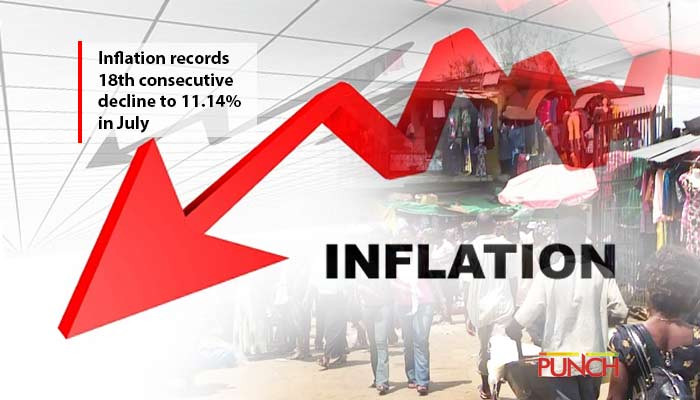
Members of the Monetary Policy Committee of the Central Bank of Nigeria have blamed the excess cash in circulation for the accelerating inflation in the country.
This was revealed in the statements they made at the February MPC meeting, which was posted on the website of the apex bank on Monday.
One of the MPC members, Pauline Odinkemelu, said, “On the monetary sector, growth in money supply (M3) rose by 18.25 per cent to N93.72tn at end-January 2024 over the preceding December. Broad money (M2) and narrow money (M1) grew by 17.81 and 3.68 per cent, respectively at end-January 2024.
“The growth in broad money supply was driven by the rise in other deposits, transferable deposits, and securities other than shares. In my view, the growth in M1 could further worsen inflationary pressures in the economy, as it signals rising transactional motives or excess liquidity in the system. The motive for holding excess liquidity is generally classified into precautionary or voluntary motives.”
According to to Odinkemelu, precautionary excess liquidity portion is useful as a buffer for insuring bank capital and uncertainty surrounding customers’ withdrawal, and does not have negative effect on monetary policy.
“However, involuntary motive usually above the desired level– a common feature of developing economies banking system – is not desirable during this period of persistent inflationary pressure, and also influences my decision to vote for monetary policy tightening. In voting for tightening, I am mindful of the implications of a rate hike on the stability of the banking system and therefore, will vote to raise the Monetary Policy Rate (MPR) by 300 basis points from 18.75 per cent to 21.75 per cent,” she stated.
Money Supply statistics from the CBN as of January 2024 revealed that currency in circulation surged by 163 per cent in January 2024 to N3.651tn from N1.39tn in the corresponding period of last year.
Month-on-month, there was a marginal 0.1 per cent decline from the historic high of N3.653tn in December 2023.
In the same vein, currency outside banks grew by 314 per cent to N3.28tn in January 2024 from N0.79tn (January 2023), implying that 89.86 per cent of the currency in circulation was outside the banking system as of January 2024.
That was a notable rise from the 57.14 per cent recorded in January 2023, following the CBN’s naira redesign.
The currency out banking system marked its all-time high at 94 per cent in December 2023 and makes up 84.46 per cent on average of currency in circulation between 1960 and January 2024.
Another MPC member, Mustapha Akinkunmi, added that Nigeria witnessed a decrease in its reserve money to approximately N24.2tn by the end of January 2024, while broad money supply increased to N93.7tn, noting that this exacerbated inflationary pressures within the country.
The Director General of the Securities and Exchange Commission, Lamido Yuguda, who is also a member of the MPC, said that loose monetary policy prevailed for most of 2023 leading to excess liquidity in the system.
“Reserve money increased by 54.28 per cent between December 2022 and December 2023, while broad money (M3) increased by 50.88 per cent over the same period, well above the provisional benchmark of 28.21 per cent.
“The 50.88 per cent increase in broad money from NGN 52.2tn in December 2022 to N78.7tn in December 2023 was driven mostly by a 46.27 per cent increase in net domestic assets, which rose by NGN 22.4tn. In other words, this represents additional credit created in the economy.” According to Yuguda, while reserve money declined by 2.34 per cent in January 2024 relative to December 2023 driven largely by a decline in liabilities to other depository corporations broad money (M3) increased by 18.25 per cent within one month, adding to the high level of excess liquidity in the system.













